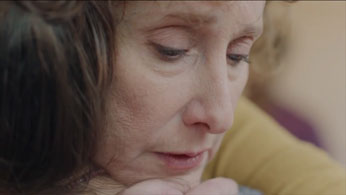After a long day of work, the last thing I want are commercials intruding on my TV time. The other day however, my friend and I were talking about how captivating the latest Bon Jovi DirecTV commercial is. Instead of checking my phone, getting food, or flipping to one of the other 400 channels I have, I actually paid attention, which is impressive for a commercial these days. I understand that ads lower the cost of television, but I wish more companies would create commercials that I can truly connect with. Often pharmaceutical companies blend into the background without a trace of the wow-factor; at least that was the case until Excedrin released their latest campaign.
We’ve all had experiences we wish others could understand and feel themselves. For me, I wish people knew what it was like to be locked in a freezer for 45 minutes without any of my co-workers noticing I was gone (it’s a lot less glamourous than you’d think). A close friend of mine has PKU, and I often wonder how it effects every part of his life. While I have no way of understanding that in particular, Excedrin’s “The Migraine Experience” campaign gives viewers a first-hand simulation of a migraine.
The ad starts with an Excedrin spokesperson introducing a virtual reality headset that replicates what a migraine does to the senses. Several volunteers try it on in order to experience what their loved ones, who suffer from migraines, have to overcome on a regular basis. The participants attempt to go about their daily lives while facing blurred vision, light spots, auras, and other hindrances. Then the headsets come off, the individuals express their sympathy for their loved ones and one mother even breaks down, hugging her daughter and saying, “I’m so sorry Annie, that you go through this at all.”
The beauty of this ad is that Excedrin takes a step back from its role as a money making business and into the role of an educator. Instead of explaining all the wonderful things their product can do to help with migraines, they instead focus on what it feels like to experience one. Personal stories woven through the ad make it very compelling to the viewer and it feels more honest than some hokey spokesperson rattling off medical jargon. This is a perfect example of showing versus telling what a migraine feels like without making Excedrin seem like the only solution.
“The Migraine Experience” campaign sets the brand apart by giving the audience information about the problem, and not just spoon feeding them one hyped up solution. Hopefully other pharmaceutical companies follow suit and drop the repetitive form of past commercials as well.
Your brand should lead by example.
(Guest blogged by Brandon Hoege)


